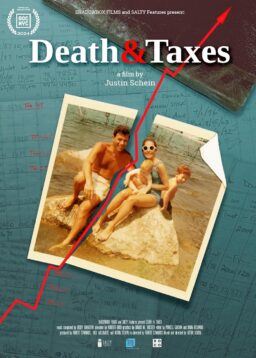Q. While watching the most recent trailer for “Lord of the Rings: The Two Towers,” I immediately recognized the music as the excellent score from “Requiem for a Dream.” I am familiar with the practice of recycling music for trailers–I can’t count the number of times I have heard the score from “Aliens“–but why bother, with a sequel to a hugely successful movie with a ready-made score? If it was slapped on for time’s sake, I might understand, but the version I heard on the
trailer sounds re-orchestrated and tweaked, as if specifically for LOTR. Granted, the urgency and sadness of the music fit the tone of the trailer perfectly, but did the studio think the existing score from the first Rings film not moving enough? (Kermit Holden, Atlanta GA)
A. You have good ears. Yes, the “Requiem” score was used, and yes, it was re-orchestrated. I contacted the AM’s expert source David Bondelevich, award-winning music editor and lecturer at the University of Southern California. He at first assumed that “re-scoring it would be prohibitively expensive,” but his contact at the Ant Farm, which created the trailer, said otherwise.
Q. Because of the release of “8 Mile,” more and more discussions have been surfacing about the validity of rap music as an art form. A disturbing trend that I’ve been seeing recently is to label rappers/rap music as “talentless” by those that are not fans of the genre. Now while you can expect comments such as that from kids and teenagers full of anti-mainstream angst, it becomes downright sad to see it from mainstream movie reviewers (a la Rex Reed). While the movie contains quite a few cliches, much of it rings completely true ; this is coming from someone who was surrounded with that environment growing up. As a movie critic who was once an aspiring rapper from the Detroit inner city, I can say that the process of writing and performing a rap drew on much more “ability” than something like writing a movie review, because of all of the different kinds of skills and talents that it draws upon at once. How is it that so many who make a living critiquing talents have such a problem recognizing it when it is something that they don’t necessarily like? (Aaron “Ator” McCray, Detroit MI)
A. The ability required to perform an art form is not related to the ability of others to enjoy it. If I told you that grand opera requires much more ability than rap music, would you abandon Eminem for Verdi? What we are talking about here is that great imponderable, personal taste. I happen to admire “8 Mile” and think Eminem is talented, but my taste in music does not run toward the angry and cheerless.
Q. Sadly, all my suspicions came true when I went to see “Punch-Drunk Love” this past weekend. Oh, not about the movie, which was beautifully done and surprisingly touching. No, as I feared, I found myself in a theater full of “Billy Madison” and “Happy Gilmore” worshippers who were programmed to laugh when Sandler cried, and look confused in between bodily-harm jokes. In your experience, can we expect Sandler to make more movies like PDL, or is the following of his first audience going to force him to continue SNL vehicles forever? (Ryan Cooke, Denton TX)
A. Sandler has been bitten by the hands that feed him. “Punch-Drunk Love” has not appealed to his traditional audiences, and there is a big disconnect between critics and fans. According to the Tomatometer, 85 percent of major critics praised the film, and yet Cinemascore.com shows that exiting moviegoers rated it between C-plus and F.
Q. Your 4-star rating of “Femme Fatale” flies in the face of every other review I have read. (I must admit that not only have I not seen this movie, and it’s entirely likely, unfortunately, that I will never see it in its original theatrical form here in Singapore.) I conclude that a) you must have a crush on Rebecca Romijn-Stamos (but who among us doesn’t) and b) others are blind to the charms of this movie. (Tony McFadden, Singapore)
A. “Femme Fatale” is one of the great recent triumphs of pure movie style, and my praise is far from alone. Critics I admire, such as Jonathan Rosenbaum of the Chicago Reader, A. O. Scott of the New York Times, David Edelstein of Slate.com, Charles Taylor of Salon.com and Ed Gonzalez of Slant.com also loved it. Perhaps audiences and critics have been so bludgeoned by in-your-face sensationalism that they have lost the taste for elegance, eroticism and wit.
Q. I was disappointed that Charles Napier did not appear in Jonathan Demme‘s “The Truth about Charlie.” Napier’s appearance in Demme’s films was a fun cinematic footnote. Do you know if Napier is still alive or still working? (Michael Green, Phoenix AZ)
A. Napier, still alive and working, has the distinction of being a favorite actor of both Jonathan Demme and Russ Meyer. He was the guard whose face was stolen by Hannibal Lecter in “The Silence of the Lambs,” and played the sheriff in “Cherry, Harry and Raquel.” Demme tells me he tried to find a role for Napier in “The Truth About Charlie” but just wasn’t able to.











